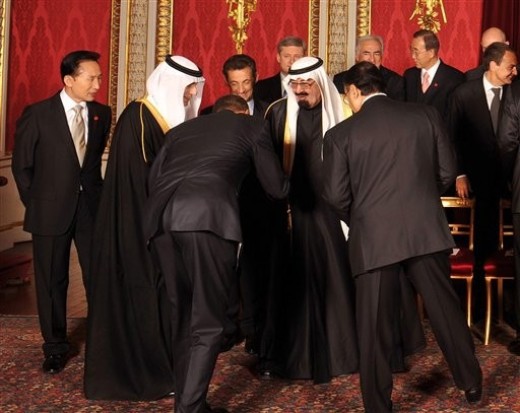How Much Military Is Enough?
For the past two years, I've been slowly trying to figure out my opinion about U.S. foreign policy and the U.S. military. There are a lot of very bad people in the world. The thuggish mullahs of Iran and the even more thuggish dictator of North Korea jump immediately to mind. But one shouldn't forget about the thugs in Africa (Robert Mugabe and the like), the thugs in Latin America (Hugo Chavez and friends), or the thugs in Europe (Vladimir Putin).
But what should the American response be? Is it our responsibility to throw them out and make the world a better place? Is it our responsibility to protect our friends (Israel, South Korea, Japan, etc) or should we only be concerned with the countries and individuals that pose a legitimate threat to our homeland? How big should the U.S. military be and how should we use it?
I still don't know what my opinion is. It vacillates between "nuke 'em all" and "let the world take care of itself", depending on the day and how recently I've read about foreign atrocities. So I was interested to read Jerry Pournelle's take on the question:
The British at one time had a naval policy of having a fleet able to defeat the next two fleets in the world; but at that time Britain had an Empire and relied on it for a number of things. The US is not an empire, and we don't seem to be learning how to be one. The question becomes.; how large a force does the US need to defend our legitimate foreign policy goals We already spend more on the military than the rest of the world combined. This may be excessive, depending on what we think we must do with that military.
I'm not at all convinced that we need NATO now that the USSR is gone. I am not sure what good it does us to have pledges from Germany to go to war if someone attacks us. I am thoroughly unaware of why we might need the Georgian army to help us if we are invaded. I can see that our commitment to them is valuable to them, but I am not certain I understand the value to the US of the US guarantee to Germany and potentially to Georgia.
I know that such guarantees are hideously expensive. And I'm inclined to make the snotty Europeans bear the cost of their own military defense. Overall, I think I favor downsizing the American military and getting out of Germany, South Korea, Japan, etc. But I'm not sure what the long term consequences of that would be. In 50 years, would we be facing a threat from a much larger and more expansionist Chinese or Russian military? It gives me pause.
Update (5:39PM): Via NRO, I see that, unless things change, China may not be too worrisome in the future.
China's Population Policy, and Ours - John Derbyshire - The Corner on National Review Online
China is not far behind Japan on the path to the demographic cliff edge. Fertility figures are no more dependable than any other Chinese statistics, but there seems to be general agreement that the current TFR is in the 1.7 to 1.8 range, somewhere between Sweden and Belgium in the international rankings.
For China, still a poor country with a huge peasant population, this is starting to throw up problems. With the one-child policy entering its fourth decade, the typical Chinese in his prime productive years now has two elderly parents to support. Elderly, and likely penniless, since those parents left their productive years without ever having had the opportunity to accumulate much.
On page 5 of my notoriously "alarmist" book, I asked, "Will China be the hyperpower of the 21st century?", and answered no: It will get old before it's got rich.
These opinions make me even more likely to take an isolationist approach.
This entry was tagged. Africa America China Foreign Policy Unanswered Questions

